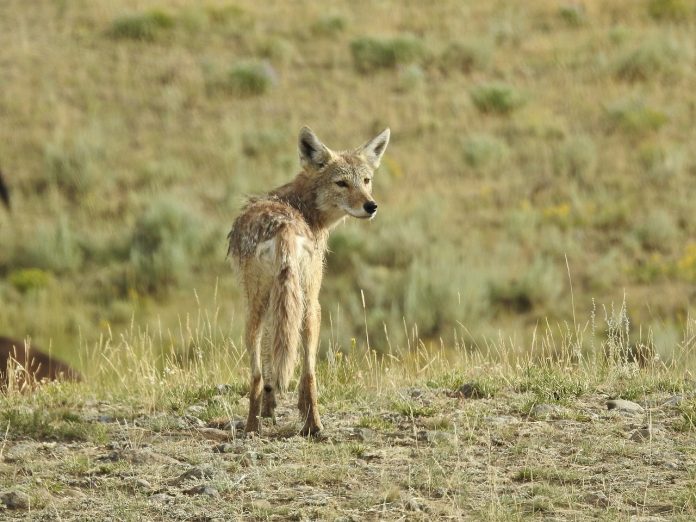By Catrina Petersen
(The Center Square) – A measure that seeks to ban wildlife hunting contests and penalize hunters participating in them with misdemeanors passed the Illinois House Wednesday.
Wildlife contests generally involve a day- or weekend-long contest promoting coyote, racoon or squirrel population management. The winner with the most killed racoons typically gets a prize. The Squirrel Bowl, a yearly squirrel hunt for all ages, raises funds for various charities.
State Rep. Wayne Rosenthal, R-Morrisonville, is worried that events like The Squirrel Bowl will be targeted. He pressed House Bill 2900 sponsor Anna Moeller, D-Elgin, if hunters would be penalized if the prize for winning a wildlife contest was a trophy rather than a cash-prize.
“This past year they [The Squirrel Bowl] took in over $203,000 … that competition. It’s two days and two-man teams and you have fathers and sons, mothers and daughters all participating in this,” said Rosenthal. “They also support HOOA, which is an organization that promotes healing for veterans”
The Squirrel Bowl raised money for Project Third Day, a nonprofit that helps children in need by providing them food, clothing, bedding, hygiene products and even bicycles. The Squirrel Bowl contest doesn’t have a cash-prize.
Moeller said her legislative intent is that those penalized under the law are people who receive a cash prize or a prize of monetary value.
“It’s a contest for cash or some type of prize that has a monetary value, which in my mind doesn’t apply to a trophy or a certificate,” said Moeller.
“I don’t think that’s what your legislation says,” Rosenthal said on the House floor. “And I don’t think that’s the way it would be interpreted.”
Opponents of the measure said wildlife contests are necessary to control animal populations. Taxpayers already pay $20 million per year in the form of wildlife damage abatement payments to ranchers, farmers and pet owners who have lost livestock or pets to predators like coyotes. The USDA kills over 80,000 coyotes annually.
Moeller said wildlife contests in Illinois are not managed by the Department of Natural Resources and are not recognized as an official means of managing wildlife populations. There’s no scientific basis in these contests having any positive impact on the populations of wildlife, she said.
“There’s nothing in this legislation that would prohibit the Department of Natural Resources from managing wildlife populations so that they are not causing problems with private property or equipment damage. It doesn’t take away the ability of government or conservation organizations from managing wildlife populations. All this legislation does is prohibit these killing contests that encourage mass slaughter of animals for cash prizes,” said Moller.
Moeller called wildlife contests a “blood sport.”
State Rep. Charlie Meier, R-Okawville, raised concerns about Illinois citizens being able to do the same thing the government gets to do with taxpayer money, which is to manage predators.
“These contests were organized as a way of protecting Illinois citizens’ private properties,” said Meier. “These contests are beneficial to towns and to agriculture. Raccoons can carry many diseases.”
Moeller said this was an initiative of the Illinois Humane Society. In 2021, groups like the Humane Society of the U.S. and Project Coyote pushed for Virginia to outlaw hunting contests. The bill in Virginia didn’t move forward. In an article by the HSUS organization about the idea of maintaining the population of coyotes, they wrote “such pronouncements are not borne out by scientific research, and are being debunked by a growing number of wildlife management agencies and professionals.”
Catrina Petersen is taking her broadcast journalism experience, and now reporting on Illinois government for The Center Square. Petersen is a graduate of Illinois State University and was previously a morning show radio host in Bloomington-Normal. Petersen and her family live for the Lord each and every day.
Originally published by The Center Square. Republished with permission.
To read more about other hunting news from the Midwest, click here.


























